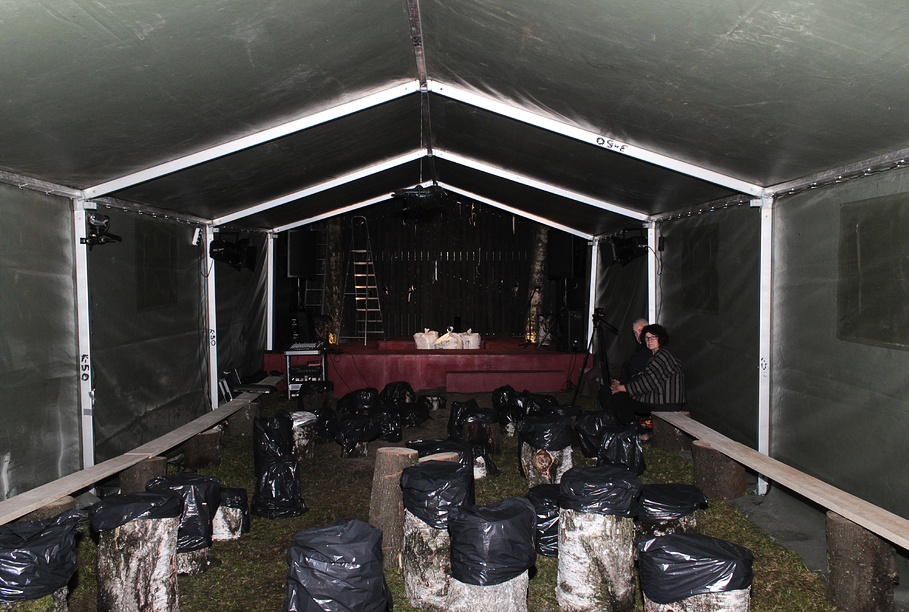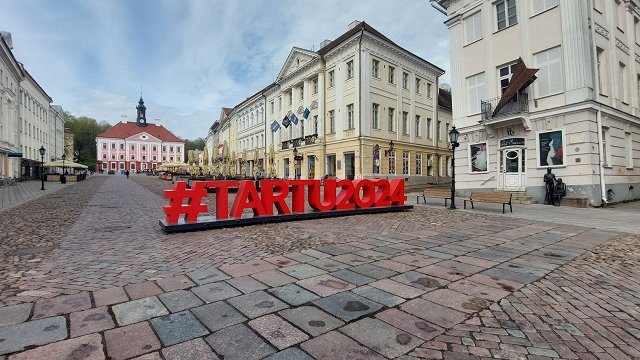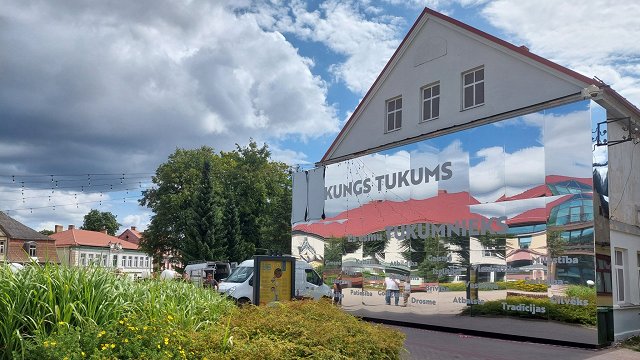World War One began a hundred years ago in the summer of 1914. It brought unprecedented destruction, altering the map of the world, social value systems and lifestyles.
Latvian poet Jānis Akuraters (1876-1937) was a witness to and participant in these events. In his autobiography he writes of the Great War: “Suddenly it did an end to the bright, sunny times, slicing through with its mystical sword” his own dreams and fate.
In November 1916 Akuraters volunteered for the Latvian riflemen’s corps assembled by the Russian imperial army. He was assigned to the Second Latvian Brigade. Soon after his enlistment, on November 23 the poet wrote that he had spoken with his superior officers about work to be done, one of the jobs being – chronicler.
One farsighted recruiting strategy of Latvian officer Jukums Vācietis, who commanded the Zemgale corps, was to include poets, artists and musicians in the ranks. While not necessarily sent to the front lines, these creative young men were sent to be orderlies, correspondents or chroniclers of the fields of battle.
These sensitive, sophisticated men longing for aesthetic experiences now got to see the war in all its merciless fury, piles of corpses, death amidst the soldiers’ courage. Out of such horrific situations these men would begin to speak in an artistic language of patriotism, and would help further inspire the Latvian riflemen to persevere. It was the road to the Latvian nation.
Café Spleen, or August 1914 will be dedicated to exploring this odd contradiction between ruining and rebuilding a world. It is named after a short story title by Akuraters, which tells of riflemen – poets and artists – seeking their own “humane refuge”, where in the evenings at a country sauna, with the sounds of war raging in the distance, they would gather together, drink tea, sing and talk of life and art “off” the battlefield.
A mock army tent erected in the poet’s home-museum backyard serves as the site for the realistic Café Spleen, which until September 12 will be hosting poetry readings, musical shows, dramatic performances and exhibitions that tell of poets, artists and composers finding themselves out in the battlefield, of the causes and effects and the resounding coincidences between distant eras.
The events program includes a two-part series based on Akuraters’ life at separate times. First comes his growing up period during the 1905 revolutionary people’s unrest against the arbitrary cruelty of the Tsar’s regime and the local German nobility. Here Akuraters’ poetry is set against parallel themes in Hermann Hesse’s novel 'Steppenwolf', accompanied by songs composed for the occasion by composer Juris Kulakovs.
Then comes Café Spleen itself, still depicting the development of the artists’ personality at an historical crossroads. This half of the event is titled ‘Jukums Vācietis and Latvian poets in the mystery of World War One’. It will be a reading of Akuraters’ short story set to songs written by Kulakovs, with lyrics by Akuraters and other writers from the Latvian literary pantheon dedicated to the riflemen’s theme.
Another series offered as part of the Café Spleen program is a dramatic performance of German philosopher Friedrich Schiller’s 'The Robbers'. Schiller's play was performed as well by riflemen thespians during the Great War.
The theme “Music on the battlefield” is devoted to riflemen’s songs, folk songs and musical pieces composed and performed by members of the riflemen’s corps and arranged for the event by Andrejs Selickis and titled ‘Colonel Jukums Vācietis. Song’. The musical conversation will be carried by vocalists Ieva Parša, Māris Jēkabsons, Andrejs Selickis and an instrumental group.
On August 22 there will be a reading of Akuraters’ novel ‘Ugunīgie ziedi’ (‘Flaming blossoms’), which was one of the first to depict the Latvian riflemen’s battles during the Great War.
During Riga’s City Festival on August 16 original documentary cinema shots taken between 1910 and 1919 will be shown along with a lecture about a Latvian motion picture filmed in 1921 and scripted by Akuraters but subsequently lost to posterity (“In the storm of times”). Two other documentaries, Juris Podnieks’ “Strēlnieku zvaigznājs” (Riflemen’s constellation) (1982) and the 1930 film of Latvian literary legend “Lāčplēsis” (Bearslayer) will also be screened.
On September 6 contemporary young poets will gather for readings of their latest works and discussions of World War One from today’s historical distance, as well as the relevance of war themes in a modern-day context. They will do so under an installed exhibit of lighting objects created by new young artists.
Three art exhibits will also open Thursday, August 14 at the Akuraters museum.
Glass artists Inguna Audere from Latvia and Michael Rogers from the US will have a joint exhibition titled “The Moon and Nails. To burn.” This will be a visual metaphor for the Indestructible in man at the moment when the soul seeks refuge touched by dreams and reality. While Audere’s work evokes transformation, renewal and healing, Rogers’ interests are in bringing bygone historical testimony to relevance and life in new contexts.
Also on exhibit will be paintings by Konrāds Ubāns, Valdemārs Tone, Jēkabs Kazāks, Jāzeps Grosvalds and other famous Latvian artists who created contemporary portraits of riflemen, including some riflemen-poets and riflemen-artists.
The third exhibit is titled “My grandfather, my great-grandfather were riflemen – from grandmother’s chest” and features sketches of objects and memories, created by VIktors Jansons.
Café Spleen will complete its events series on September 12 with the title “The Field of Death and… Apotheosis of the Great War”.



























